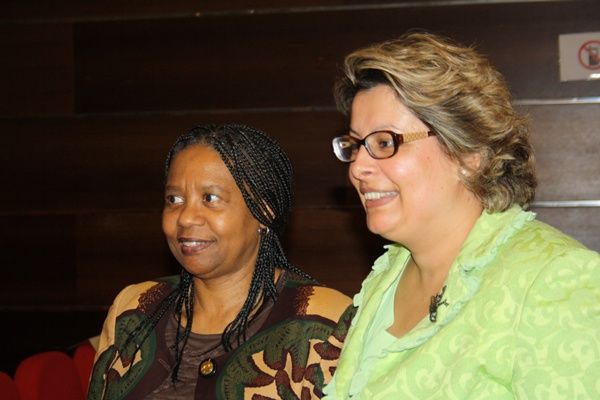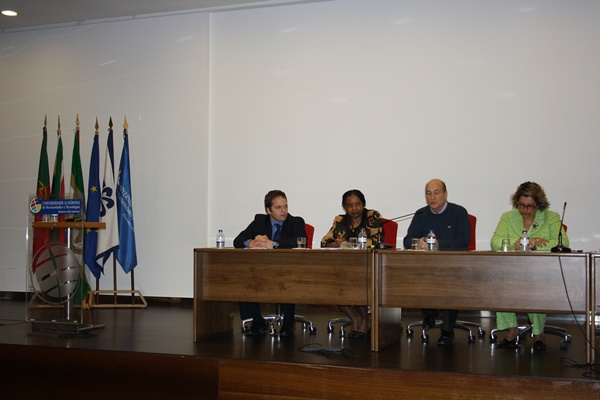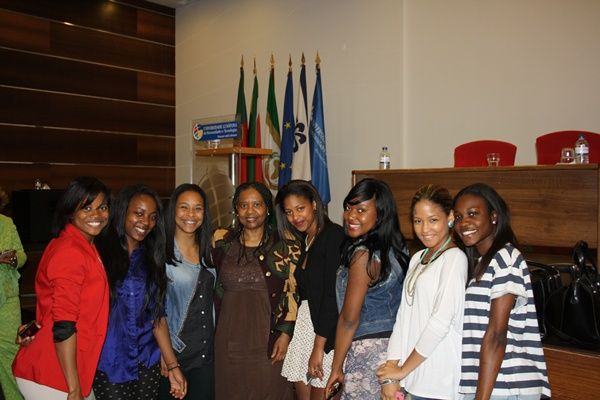President Zuma video message: Mandela Day
Please click here to access video
Please click here to access video
Good afternoon ladies and gentlemen of the media.
In our briefing today, we will pay particular attention to (1) the unfolding situation in the Arab Republic of Egypt, (2) the upcoming meeting of the SADC, to be held in Dar es Salaam, Tanzania, this weekend and (3) the South Africa-European Union Summit, which South Africa is hosting this month.
1. The situation in the Arab Republic of Egypt
The South African Government has observed with deep concern the suspension of the Constitution and the removal of the democratically-elected President in violation of the Constitution of the Arab Republic of Egypt – this only one year after the first-ever inclusive democratic Presidential election.
The South African Government views this as a serious breach of the African Union (AU) Constitutive Act and other relevant instruments, including the African Charter on Democracy, Elections and Governance; the Algiers Decision; and the Lomé Declaration.
We therefore welcome and endorse the resolutions of the 384th meeting of the African Union Peace and Security Council that was held on 5 July 2013 specifically to deliberate on the situation in Egypt. This meeting decided, amongst others, to “suspend the participation of Egypt in the AU’s activities until the restoration of constitutional order”.
Furthermore, the South African Government considers this event as a major setback for the advancement and consolidation of democracy in Africa.
The South African Government is deeply perturbed about the potential negative impact of this event on peace, stability and security in Egypt and the region. In this respect, South Africa wishes to strongly condemn the shameful acts of violence that took place in Cairo on 8 July 2013 that left more than 50 people dead and over 400 wounded. The South African Government would like to seize this opportunity to express our heartfelt condolences to the families of all who lost loved-ones in this tragic incident.
The South Africa Government calls on all relevant parties to engage in inclusive political dialogue in order to return to a constitutional order as quickly as possible through the holding of free, fair and all-inclusive elections. Furthermore, the Government also calls on all parties to refrain from acts of violence, revenge and retribution.
We also call on all Egyptians to embrace the spirit of national reconciliation which will contribute positively to the establishment of long-term political stability in Egypt. In this regard, South Africa stands ready to continue to assist Egypt by sharing its experiences of political transition from apartheid rule to a democratic dispensation.
All non-essential personnel and families attached to the South African Embassy in Cairo have been temporarily withdrawn until the situation allows for their return. The South African Embassy in Egypt remains open and is available at all times to assist South African citizens should circumstances require.
Government strongly advises all South African citizens to register online on ROSA (Registration of South African citizens Abroad) in order for the Government to be able to contact them or their relatives/friends in South Africa in case of an emergency.
2. SADC meeting in Tanzania
The South African Government will participate in the 15th meeting of the Ministerial Committee of the SADC Organ (MCO) on Politics, Defence and Security Cooperation, scheduled for 13 July 2013 in Dar es Salaam, United Republic of Tanzania.
South Africa chaired the SADC Organ from August 2011 – 2012. Our role as a member of the Troika requires that we give support to the Chair and also collectively lead SADC in implementing its peace and security agenda; and to give policy direction between Summits.
It is expected that the MCO will consider a number of issues, among them, Review of the Political and Security Situation in the Region, Implementation of the Strategic Indicative Plan for the Organ (SIPO), Consolidation of Democracy in the Region, SADC-EU Regional Political Cooperation and to also consider Progress Reports on Security Situation in the Region with particular focus on Democratic Republic of Congo and the Republic of Madagascar.
Lastly, South Africa will participate in the SADC Electoral Observer Mission to the Republic of Zimbabwe which is expected to be launched on 15 July 2013.
3. SA-EU Summit
South Africa will host the 6th SA-EU Summit on the 18th of July 2013.
South Africa and the EU’s common interests provide a natural foundation for a strategic partnership that significantly enhances existing cooperation by moving from mere political dialogue to active political cooperation on issues of mutual interest.
Since 1994, buildings on shared values and mutual interests, South Africa and the EU have developed a comprehensive partnership based on the Trade, Development and Cooperation Agreement (TDCA).
A guiding principle for the SA-EU Strategic Partnership is that it must support South Africa's national, regional and African priorities and programmes to eradicate poverty and underdevelopment. This is further emphasised in the stated objective of the development partnership between South Africa and the EU to develop the Second Economy and to closer link it to the First Economy.
On 18 July Presidents Von Rumpoy and Barosso will meet President Zuma in Pretoria. Given the challenges that face South Africa at the moment, President Zuma will emphasise South Africa’s engagements with Europe around a central theme namely ”Job Creation through Inward Investment.” This theme is also in response to the diverse demands of South Africa’s national development plan. Investment in this regard should be seen as broad and multi-faceted to encompass all the aspects of South Africa’s relationship with Europe. To this end the Summit will be utilised to:
From a trade perspective, the EU has maintained its lead as South Africa’s most important regional trading partner between 2000 and 2011, although its total share of trade decreased from 35.5% in 2000 to 26.5% in 2011. SA-EU total trade grew 13% in 2011 year-on-year and reflects a high sectoral diversity (manufactured goods, commodities and agriculture). Processed and semi-processed goods represented more than 50% of total South Africa exports to the EU and 79% of the EU exports to South Africa. The EU foreign direct investment stock in South Africa comprises 77% of South Africa’s total FDI stock.
The EU is also South Africa’s main development assistance partner, amounting to €980 million for the period 2007-2013, with a further €900 million from European Investment Bank (EIB) for same period. South Africa’s classification as high middle-income state signifies a possible decrease in ODA from EU.
Thank you.
ISSUED BY THE SOUTH AFRICAN DEPARTMENT OF INTERNATIONAL RELATIONS AND COOPERATION
On the occasion of the Commemoration of the founding of the Organization of African Unity – African Union, the South African Ambassador, Ms Keitumetse Matthews, addressed a lecture at Lisbon’s LusofonaUniversity, on 22 May 2013.
The South African Ambassador was honoured with the presence of the University’s Rector, Dr. Mário Moutinho, and Director of International Relations, Dr. Teresa Damásio, among other relevant officials and academics.
The exchange of views were insightful in exposing Portuguese academics and students, in particular, to the political, social and economic complexities in the African Union and South Africa. At the end of the lecture that captured the student’s attention, the Ambassador gladly responded to their questions.
The synopsis of the lecture, was as follows:
Five decades after the formation of the OAU, Africa is on the rise – politically, economically, culturally, socially and in terms of its demographics. There are optimism and energy in all areas of human endeavour. The continent still faces many challenges and understands the need to use the 50th Anniversary of the formation of the OAU-AU as the opportunity to rejuvenate its mission through Pan Africanism and the African renaissance. The AfricaUnion has positioned itself as a continental and global player. It plays an important role in determining and shaping Africa’s future and in pursuit of African solutions to African problems.
After years of isolation due to apartheid, South Africa was allowed back into the fold of the OAU in 1994. It played a prominent role in establishing the African Union in 2002 and continues to play an important role in the strengthening ofAfrica’s capacity and actions in conflict prevention, management and resolution, and governance.

The Ambassador of South Africa with Dr. Teresa Damásio, Director of International Relations at Lusófona University

The Dean of Lusófona University, Dr. Mário Moutinho, with Ambassador Matthews
and First Secretary Rudolph Stroebel to his right, and Dr. Teresa Damásio to his left

Ambassador Matthews with a group of university students
Fellow South Africans,
We have come to the end of an eventful, successful and also very challenging year.
We made a lot of progress in 2012 as we continued with our mission of building a united, non-racial, non-sexist, democratic and prosperous South Africa.
In 2014, we will mark 20 years of freedom and democracy.
Leading towards that milestone, we have to hasten our drive towards attaining socio-economic freedom.
We have a good basis to build on. The Census 2011 results indicated an increase in income levels, an improvement in the roll out of basic services and amenities as well as rising education levels.
At the same time, the Census indicated deep income disparities. For example, it revealed that the income of a white household is six times that of an African household.
In addition, while many more people now have water, electricity, sanitation or housing, there are many more that are still waiting.
We have a long road to travel to prosperity. And we have a plan to get us to that destination - the comprehensive National Development Plan.
The plan outlines the type of society we should be in 2030, where all will have water, electricity, good health, libraries, good schools, roads, good hospitals and clinics, safety and security, recreational facilities, a growing economy and jobs.
Government alone cannot build that type of society, but will need to work with people from all walks of life to find solutions.
We also have to build a society in the short term, where problems can be anticipated and resolved peacefully without a tragic outbreak of violence as it happened in Marikana.
We must build a society in which women and children feel free and safe, with no fear of abuse, rape or any form of violence, and a society in which our animals, especially the rhino, are safe from ruthless poachers. It is possible to achieve that type of society by working together.
Compatriots, let me also take this opportunity to thank you for your support and prayers while our founding President Nelson Mandela was in hospital.
He remains an important symbol of our struggle for liberation and of the successful transition from apartheid colonialism to a non-racial and democratic society. We should continue to keep the Mandela family in our thoughts and prayers until Tata has fully recovered.
Compatriots and friends, January will be an exciting month as we host the Africa Cup of Nations tournament.
Let us receive Africa with warm hearts and open arms as always! In March we will host our friends and allies, the BRICS group of nations in Durban and take forward our partnership for reconstruction and progress.
I wish all South Africans as well as the foreign nationals who live in our country or who are visiting us to enjoy our wonderful summer – a joyous and safe festive season and a prosperous new year!
I thank you.
Enquiries:
Mac Maharaj
Cell: 079 879 3203
Issued by: The Presidency
31 Dec 2012
The new South African Banknotes are on circulation since Tuesday, 6 November 2012. The new banknotes feature an image of former President Nelson Mandela on the front, with images of the "Big Five" animals on the back of the various banknote denominations.
Commenting on the announcement, Reserve Bank Governor Gill Marcus said: "Our currency is a unique symbol of our nationhood, with many of us handling banknotes every day. The Reserve Bank is proud to be able to honour South Africa's struggle icon and first democratically elected President in this way, and we thank all our stakeholders for their hard work in making this process possible."
An education and public awareness campaign has preceded the circulation launch, with advertisements flighted on television, radio, newspapers and magazines, as well as online and on social media platforms.
South Africans have been given the opportunity to familiarise themselves with the security features of the new banknotes - prior to the official circulation - through road shows and public outreach events nationwide. Common Monetary Areas (CMA) such as Swaziland, Namibia, Lesotho, Mozambique, Botswana and Zimbabwe are included in these awareness efforts.
The current and new banknotes will co-circulate and both remain legal tender.
Commercial banks and the retail industry are familiar with the state-of-the-art security features in order to ensure a seamless transition of the new banknote series.

For more information on the notes, please check
http://banknotes.resbank.co.za/banknotes
by South African Reserve Bank, Oct 2012